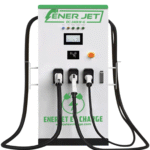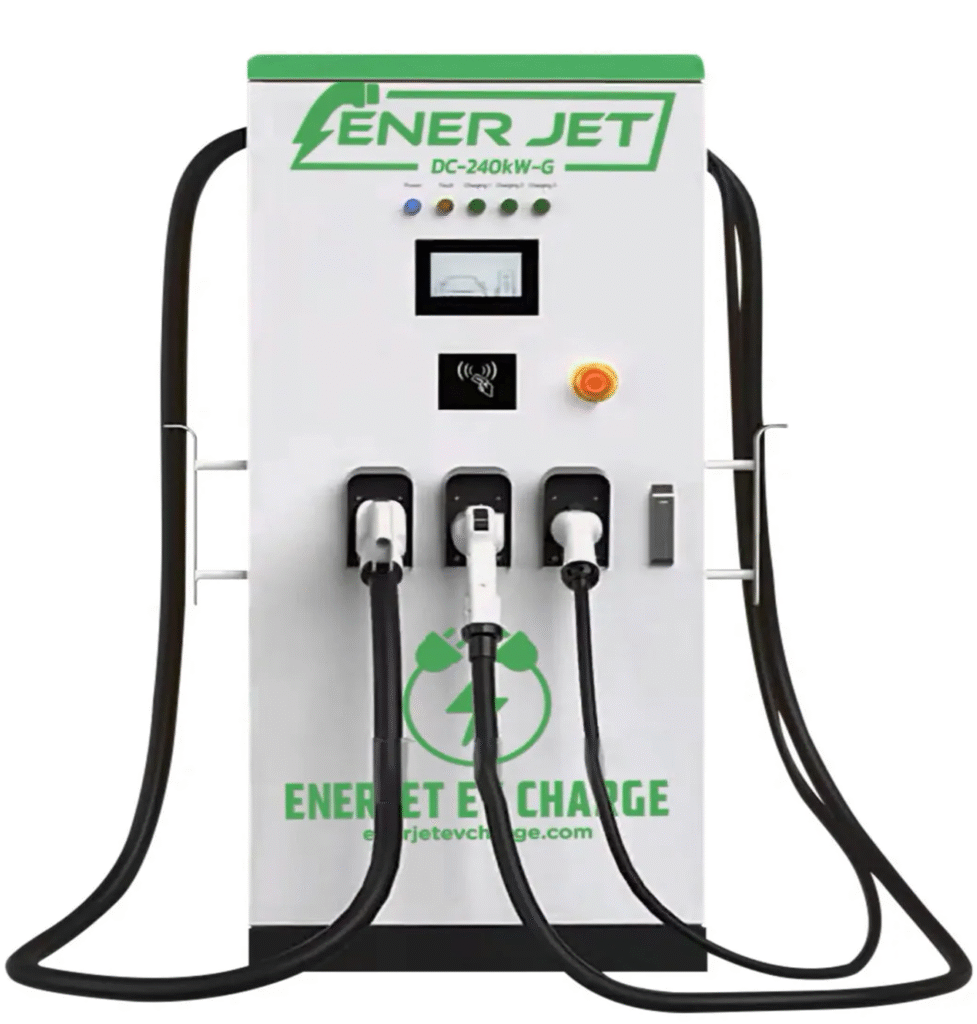1 review for EnerJet DC-240KW-G
| 5 star | 100% | |
| 4 star | 0% | |
| 3 star | 0% | |
| 2 star | 0% | |
| 1 star | 0% |
 EnerJet DC-240KW-G
EnerJet DC-240KW-G

$37,995.00 Original price was: $37,995.00.$27,995.00Current price is: $27,995.00.
Availability: 4 in stock

EnerJet DC-240KW-G is a poweful ev charging station that will enable your customers to recharge their electric vehicles almost as fast as refueling at a gas station. It provides 800 miles of range per hour. Beat out the competition with this super-fast electric vehicle charging station and add another stream of income.




QUESTIONS & ANSWERS
KW refers to the amount of power of a DC Charger. The higher the KW, the more power the charger delivers. For example, a 240KW Level 3 DC Charger can add 800 miles per hour to an electric vehicle while a 30KW Level 3 DC Charger, adds 100 miles per hour.
A key difference between AC and DC electric vehicle charging stations is that AC chargers are limited by the vehicle’s acceptance rate. For example, some EV have an acceptance rate of only 3.6 KW. In such a scenario, an AC charger can only supply 3.6KW of power even if the charger’s rated power is 30KW. On the other hand, a DC charger has a built-in converter and delivers power beyond the vehicle’s acceptance rate. Therefore, a 30KW DC charger supplies 30KW of power regardless of the vehicle’s particular acceptance rate. Another difference is the voltage. AC chargers are much slower because they only use either 120-volts (Level 1) or 240-volts (Level 2). Level 3 DC chargers, on the other hand, typically run off of 480-volts and three phases.
Yes. The Level 3 ev charging stations accept all major credits cards through the OCPP software and RFID scanner. We also work with vendors who provide our customers with a QR-Code to process payments.
A Nationally Recognized Testing Lab (NRTL) is one approved by OSHA. UL and SGS are NRTLs. The current version of the National Electrical Code (NEC) requires ev charging stations to be listed by a NRTL. “Listed” means that an approved NRTL tested the equipment and it can be verified on the NRTL’s website.
Yes. We provide after-sales installation support for all the ev charging stations.
The ev charging stations are designed for minimal maintenance. Regularly check connections and clean components as needed. Detailed maintenance guidelines are provided in the user manual, and our support team is available for additional assistance.
| 5 star | 100 | 100% |
| 4 star | 0% | |
| 3 star | 0% | |
| 2 star | 0% | |
| 1 star | 0% |
Sorry, no reviews match your current selections
 EnerJet DC-240KW-G
EnerJet DC-240KW-G
Powerful